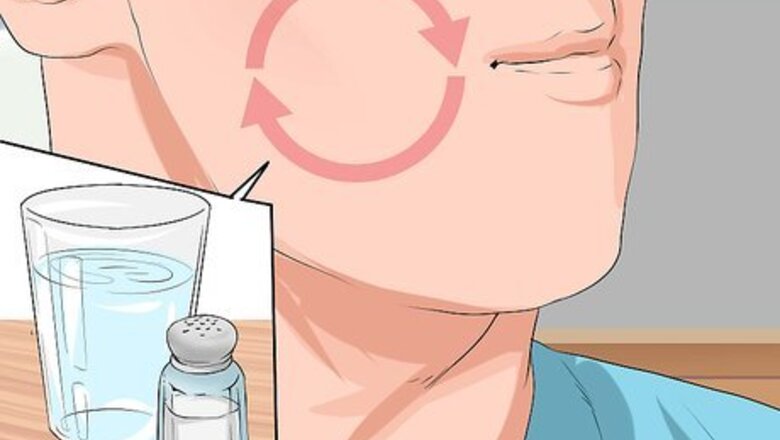
views
X
Trustworthy Source
PubMed Central
Journal archive from the U.S. National Institutes of Health
Go to source
- Use a humidifier to moisten the air in your home and try gargling salt water to reduce cough-causing inflammation in your throat.
- Increase your fluid consumption by drinking more water and herbal teas and eating soups or broths.
- See a doctor if you notice a thick phlegm, trouble breathing after a cough, or general shortness of breath.
Using Home & Natural Remedies
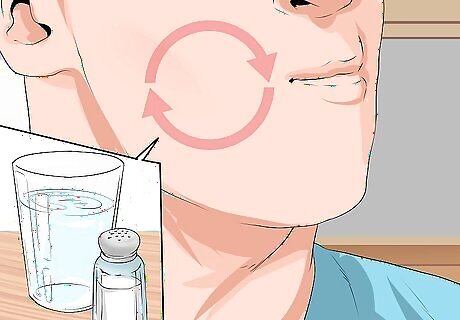
Gargle with salt water. Gargling with salt water can help to reduce some of the swelling in your throat and this can help to reduce coughing. You can gargle with salt water every couple hours throughout the day to help with your wheezing cough. To gargle with salt water, take about ¼ to ½ teaspoon of sea salt and dissolve it in one cup of warm water. Then gargle with the saltwater solution for about 30 to 60 seconds. Spit out the salt water after you are done.
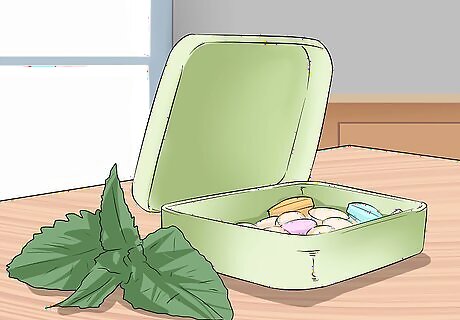
Suck on cough drops. Cough drops can help to silence a wheezing cough, but keep in mind that cough drops will not cure a wheezing cough. Look for cough drops that contain menthol, which has a cooling effect on your throat and breathing passages. You can suck one lozenge every couple of hours to help silence your wheezing cough temporarily.
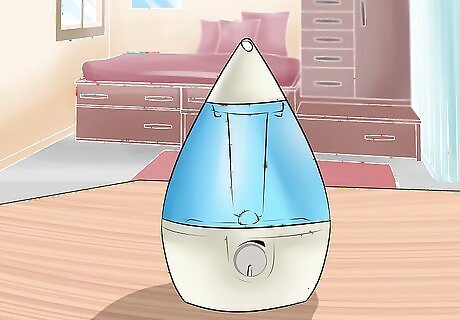
Run a humidifier. Keeping the air moist in your home can also be helpful for a wheezing cough. Humid air helps to loosen up mucus and reduce coughing. You can run a humidifier when you are home to prevent the air from becoming too dry. You can also try adding a few drops of essential oil to the humidifier to increase the benefits of the steam. Some good essential oils to add to a humidifier include eucalyptus, peppermint, ginger, and camphor. If you do not have a humidifier, then taking a warm shower will help to moisten your nasal passages and calm down your wheezing cough as well. Try taking a warm shower before bed to help you relax and reduce coughing while you sleep.
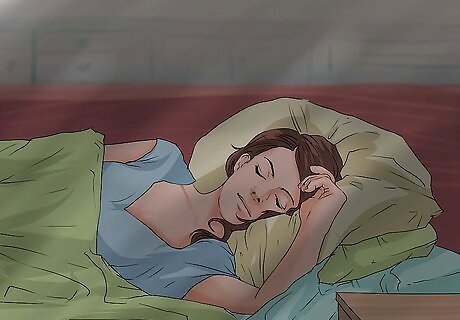
Get plenty of rest. Rest is essential for recovery from any type of illness, so plan to get lots of rest. You may need to take a day or two off of work to allow yourself enough time to rest. Try to get at least eight hours of sleep every night while you are recovering. You can also supplement your sleep by taking naps if you need to.
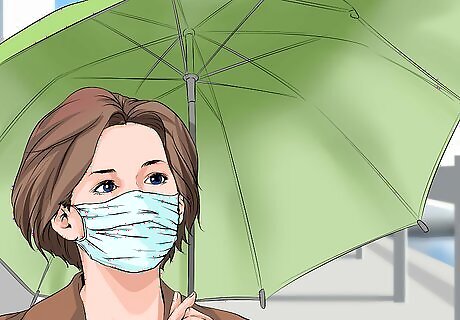
Try wearing a mask when you go outside. Environmental irritants can also contribute to a wheezing cough sometimes. If you think that environmental irritants such as pollution, chemicals, and smoke may be aggravating or causing your wheezing cough, then you may want to wear a mask when you are exposed to these irritants. Cigarette smoke can be especially irritating when you have a wheezing cough and make you feel worse. If you are smoker, then you should try to quit smoking to get rid of your wheezing cough. Talk to your doctor about smoking cessation medications and programs that may help support your efforts to quit smoking.
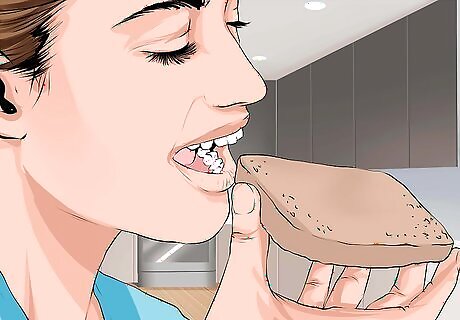
Eat smaller meals. If your wheezing cough is a side effect of GERD, then eating smaller meals throughout the day may also help to get rid of it. Avoid eating large heavy meals and opt for smaller nutritious meals instead to help reduce the side effects of GERD and get rid of a wheezing cough associated with your GERD. Make sure that you do not eat too close to bedtime either. Try to stop eating about three to four hours before bedtime as well.
Increasing Your Fluids
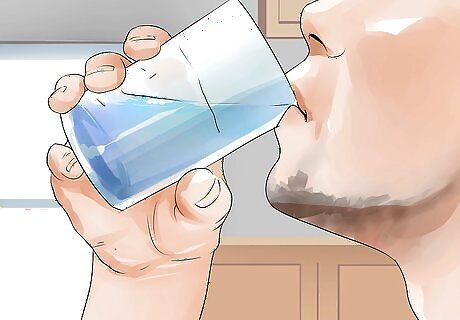
Drink lots of water. Getting plenty of fluids will help you to recover as well. While you are recovering, try to drink between eight to 10 8-ounce glasses of water per day. You can also incorporate a cup or two of juice as part of your daily fluid intake, just make sure that water makes up the majority of your fluid intake.
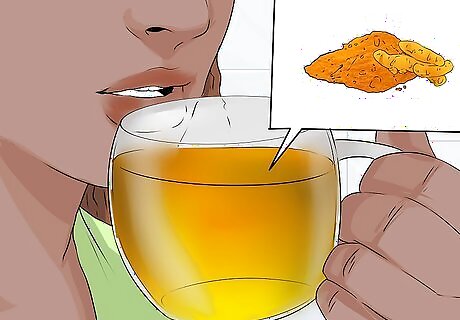
Sip herbal teas. Drinking herbal tea can also help you to get more fluids and some teas provide therapeutic benefits as well. To make a cup of herbal tea, pour one cup of boiling water over one teaspoon of herbs or one herbal teabag. Let the tea steep for about five minutes, then remove the tea leaves or tea bag from the water. You can drink a few cups of herbal tea every day. Some good choices include: Slippery elm Garlic Peppermint or spearmint Ginger Cayenne and black pepper (use just a pinch of each!)
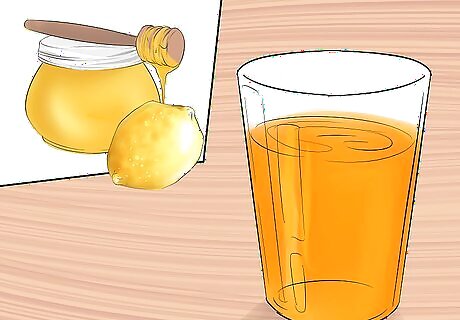
Mix warm water with honey and lemon. Drinking a mixture of warm water and honey can help to loosen up mucus and reduce coughing. Lemon juice is a good addition because it contains vitamin C. Keep in mind that children under one year old should not have honey.
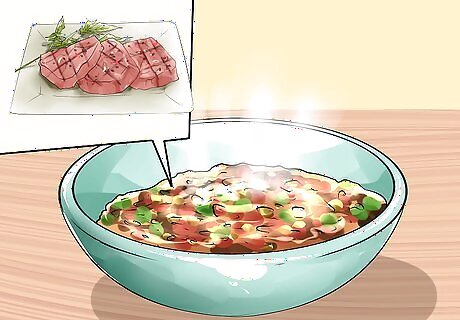
Eat soups and broths. Consuming soups and broths can help to increase your fluid intake and may make it easier to get rid of your cough.The warm liquid can help to loosen up mucus in your throat and lungs that may be aggravating your cough. Try eating chicken noodle soup, vegetable soup, or just some plain beef broth.
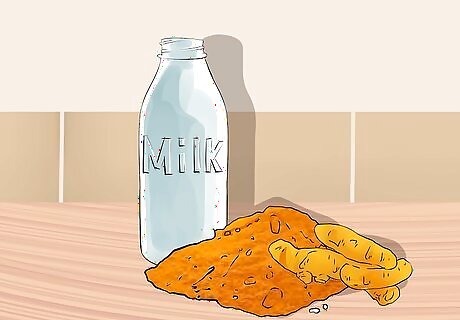
Make yourself a turmeric and milk latte. Turmeric mixed with warm milk has been used as a traditional treatment for colds and coughs, so this remedy is also worth trying. Mix ½ teaspoon of turmeric with one cup of warm cow’s milk. If you are not a fan of cow’s milk, then try mixing turmeric with almond milk, rice milk, or hemp milk instead.
Seeking Medical Help
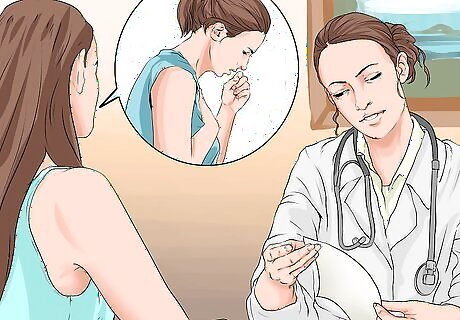
Know when to seek medical attention. In some situations, it may be necessary for you to seek treatment right away. You can try home treatments for a few days, but you will need to see a doctor if your condition does not improve after a few days or if you have a cough for over 4 weeks without knowing the cause. Call your doctor if you notice: Thick and/or greenish-yellow phlegm Wheezing or whistling sound at the beginning or end of each breath Any odd-sounding cough (not just wheezing) and difficulty with breathing at the end of a cough A fever of more than 104°F (38°C) Shortness of breath If you have a pulse oximeter, you should call a doctor if your oxygen saturation is under 90%.
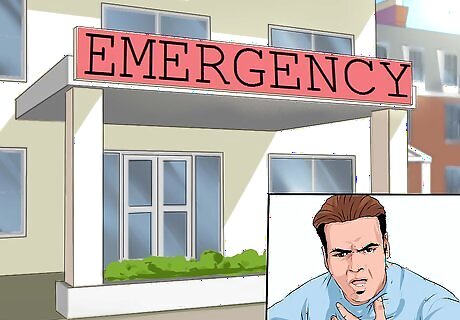
Go to an emergency room for severe symptoms. In some cases, a cough may present with other symptoms that require immediate medical treatment. Go to an emergency room if you experience: Choking Difficulty breathing or swallowing Blood in your phlegm or pink-tinged phlegm Shortness of breath after saying 2–3 words
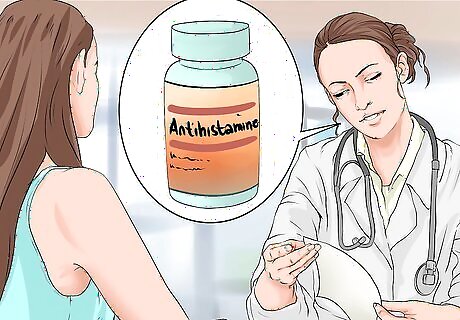
Ask your doctor about medicines for your cough. There are several prescription and over-the-counter medicines available that may help to relieve your wheezing cough. Make sure that you check with your doctor before taking anything because the medicine you need will depend on the cause of your cough. Some common medicines for different types of coughs include: Antihistamines — May be recommended for a cough brought on by allergies. Cough suppressants — May be helpful for a cough due to the common cold. Decongestants — May be helpful for a cough with sinus congestion. Expectorants — May be helpful if you have lots of thick mucus that you cannot cough up. Bronchodilators/Inhaled Beta Agonists — May be helpful for asthma-related coughs, but it will not help for other causes.




















Comments
0 comment